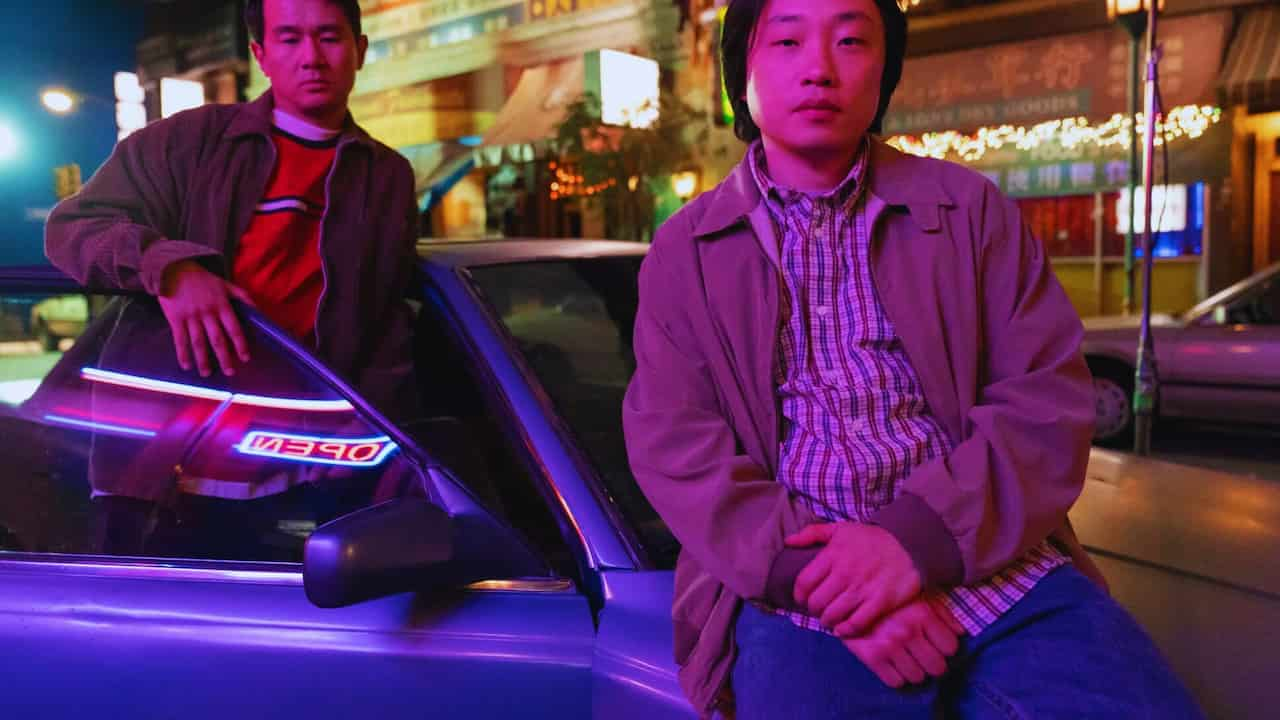Breaking Barriers: Jimmy O. Yang’s Journey from Background Actor to Leading Man in ‘Interior Chinatown’
In a groundbreaking turn of events, Jimmy O. Yang has transformed from “Asian Teenager No. 2” to leading man in Hulu’s newest series, “Interior Chinatown,” premiering Tuesday with all 10 episodes. This remarkable journey showcases not just one actor’s rise but highlights the changing landscape of Asian representation in Hollywood.
The series, adapted from Charles Yu’s National Book Award-winning novel, tells a unique story that blends reality with fiction. Yang plays Willis Wu, a waiter who finds himself caught between two worlds after witnessing a crime – his everyday life in a restaurant and a “Law & Order”-style TV show called “Black & White.”
“I really felt like the novel spoke to me as an Asian American, as an actor, as an artist who felt like I was always in the background of my life,” Yang shares, reflecting on his personal connection to the role. Born in Hong Kong and moving to Los Angeles at age 13, Yang’s own path mirrors his character’s struggle for visibility.
The show cleverly uses different lighting techniques to separate Willis’s two worlds, with the police precinct shown as a backlot set. The show’s creative choice underscores its commentary on Hollywood’s historical relegation of Asian actors to background roles or stereotypical characters.
“This book speaks to every single Asian actor in Hollywood,” asserts Ronny Chieng, the actor portraying Fatty Choi in the series. Asian actors have consistently served as comedic relief, often portraying roles such as villains, henchmen, or best friends.
The series tackles serious themes while maintaining a sense of humor. Showrunner Charles Yu describes the series as a blend of ‘Law & Order’ and ‘The Truman Show’, providing both entertainment and social commentary. The show explores how Asian actors often find themselves trapped between invisibility and hypervisibility in American media.
Chloe Bennet, who plays a sympathetic detective, brings her own experience to the project. She reveals changing her name from Wang to Bennet early in her career after being told she was “not Asian enough to play the best friend, but not white enough to play the lead.”
The show’s setting in Chinatown serves as both literal and metaphorical space. Yu explains, “It’s both a set and a mind-set, a physical space and an imaginary cultural space.” This duality perfectly matches the show’s exploration of identity and authenticity.
Yang’s journey from bit parts to leading roles represents a broader shift in Hollywood. His breakthrough came with HBO’s “Silicon Valley,” where he turned a two-line part into a recurring role. Since then, he’s appeared in “Crazy Rich Asians,” “Patriots Day,” and even wrote a book titled “How to American: An Immigrant’s Guide to Disappointing Your Parents.”
“Interior Chinatown” marks a significant milestone in Yang’s career and in Asian American representation on television. The series challenges viewers to think about roles—both on screen and in society—while delivering an engaging story that blends comedy, drama, and social commentary.
With this new series, Yang proves that breaking out of prescribed roles isn’t just possible—it’s necessary for moving the entertainment industry forward. As Willis Wu struggles to escape his background character status, Yang himself stands as proof that such transformation is possible, making “Interior Chinatown” not just a show but a statement about change in Hollywood.
